The Widest Street in the World | 9 de Julio Avenue, Argentina
9 de Julio Avenue — The widest street in the world is located in Buenos Aires, Argentina. The street 9 de Julio Avenue, which received its name in honor of the Independence Day of Argentina, July 9, 1816. July 9th Street is located in the capital, Buenos Aires. It covers an entire city block. Autonomous City of Buenos Aires avenue has up to seven lanes in each direction and is flanked on either side by parallel streets of two lanes each. There are two wide medians between the side streets and the main road. The total width of the street is 110 m. Such a huge road was created as a result of joining two quarters running parallel.
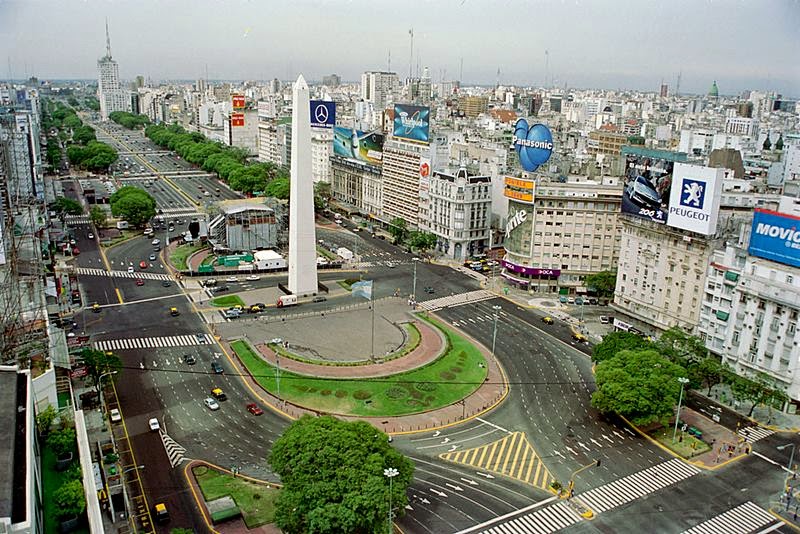
Avenue planned to build in 1888 with the name of Ayohuma, but these plans become a reality only in 1937. Construction of major facilities was completed in 1960. The southern connections were completed after 1980, when the downtown portion of the tollway system was completed. Clearing the right-of-way for these intersections required massive condemnations in the Constitución area. [Frist Image credit fvyague]
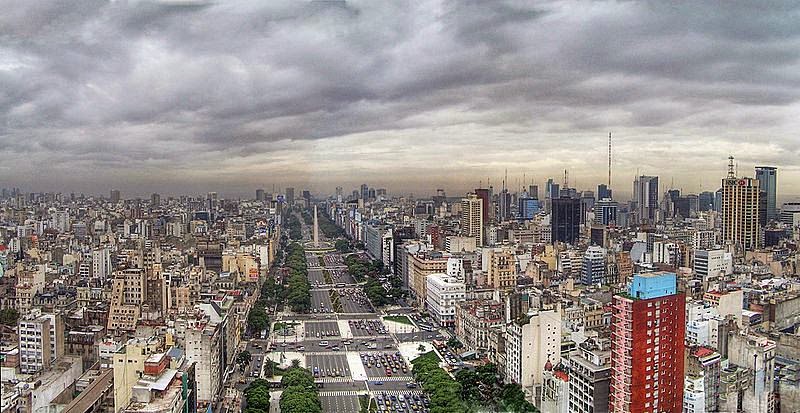
Image credit Wikipedia
Line C of the Buenos Aires Metro runs for a stretch under the avenue. Line A, Line B, Line D, and Line E have stations when their course intersects the avenue. Notably, lines B, C, and D share a station underneath the Obelisk, which is the focal point of the subway system and features a retail concourse which also serves as an underpass. The respective station names are Carlos Pellegrini, Diagonal Norte, and 9 de Julio.
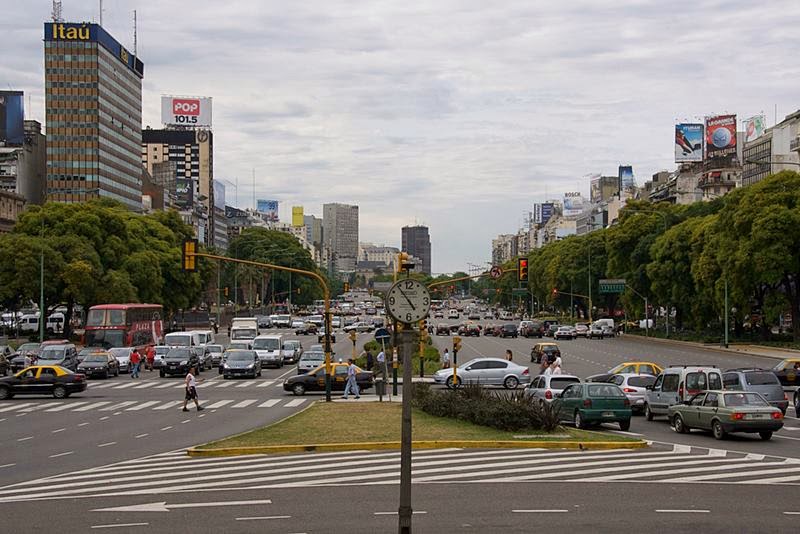
Image credit Aram Kudurshian
Crossing the avenue at street level often requires a few minutes, as all intersections have traffic lights. Under normal walking speed, it takes pedestrians normally two to three green lights to cross it. Some urban planners have submitted projects to move the central part of the avenue underground to alleviate the perceived "chasm" between the two sides of the avenue.
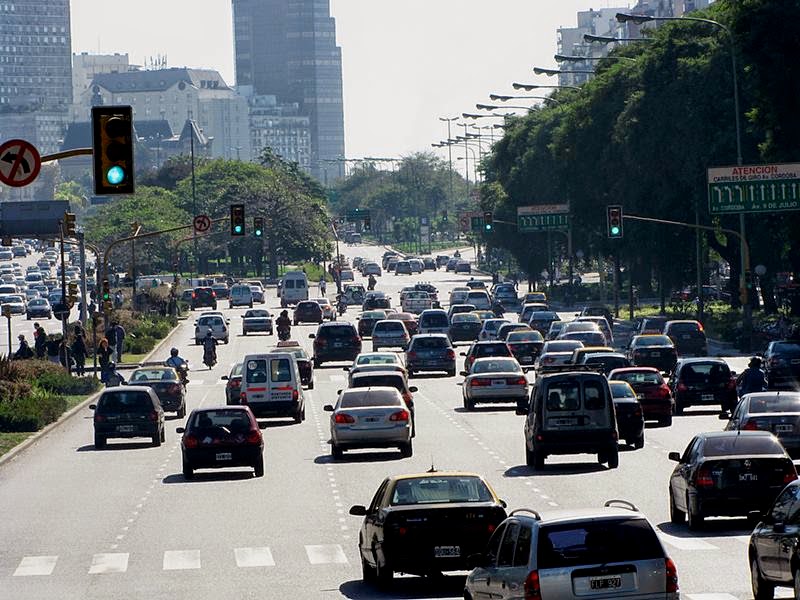
Image credit Felipe Savone
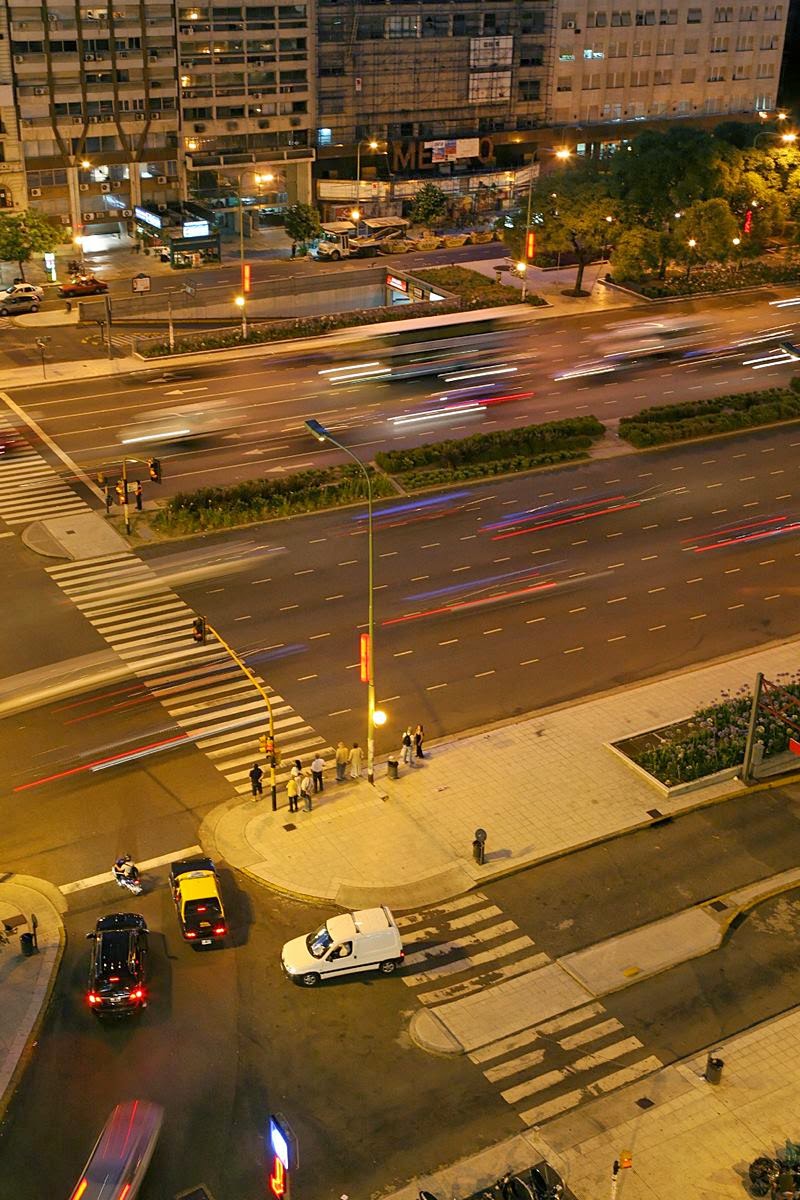
Image credit Eric Firley
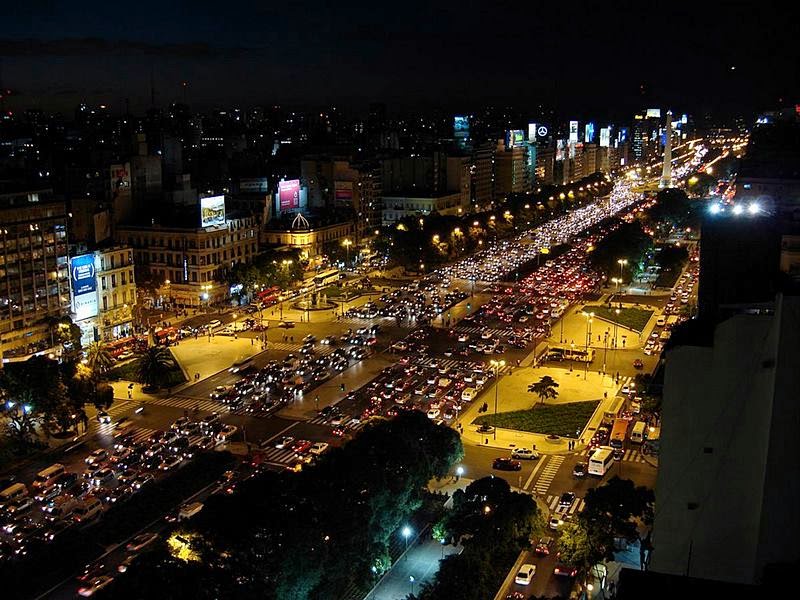
Image credit Emilie F
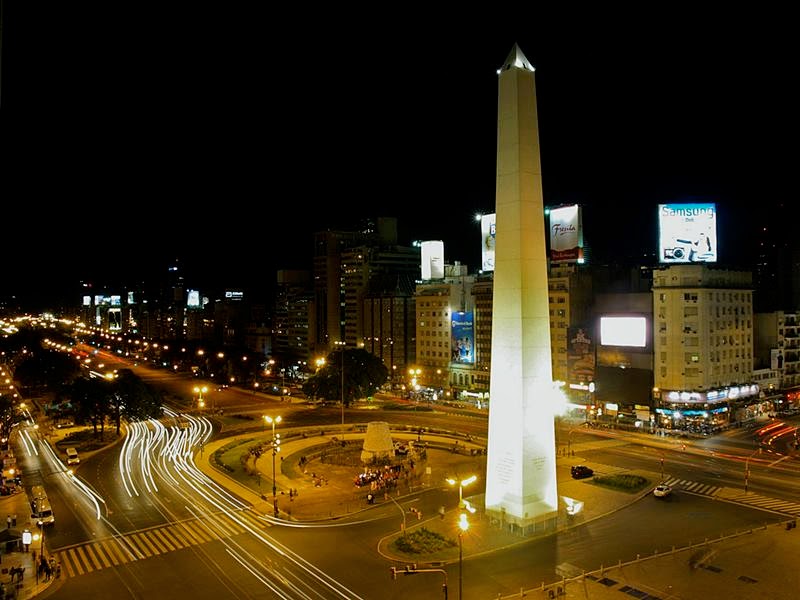 |
| Avenida 9 de Julio at night. Image credit Alfredo Izaguirre |
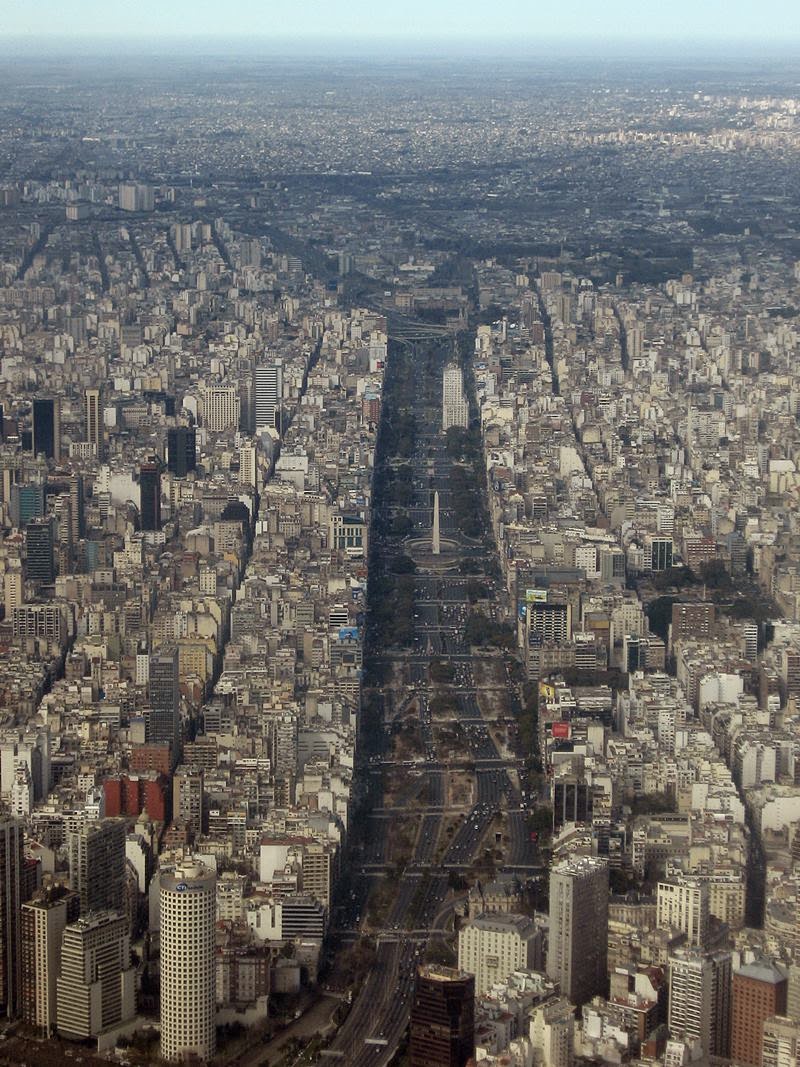
Image credit Pipistrula
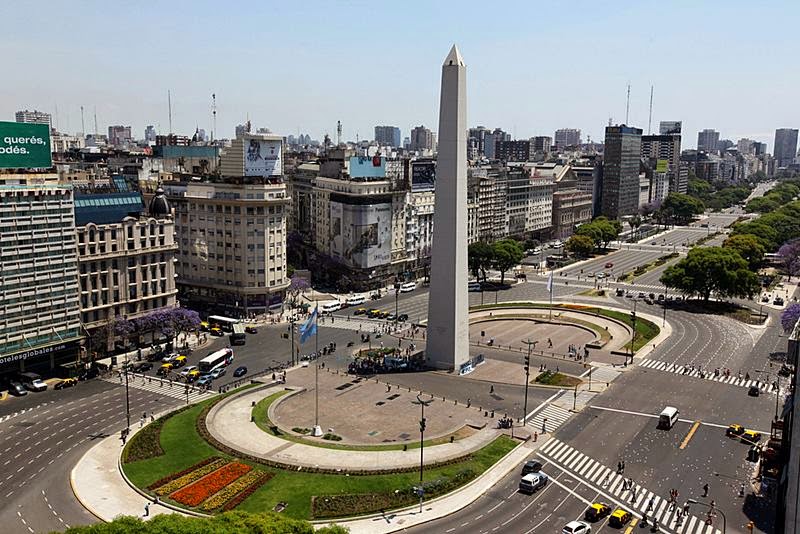 |
| Avenida 9 de Julio and the obelisk. Image credit Guadalupe Aizaga |
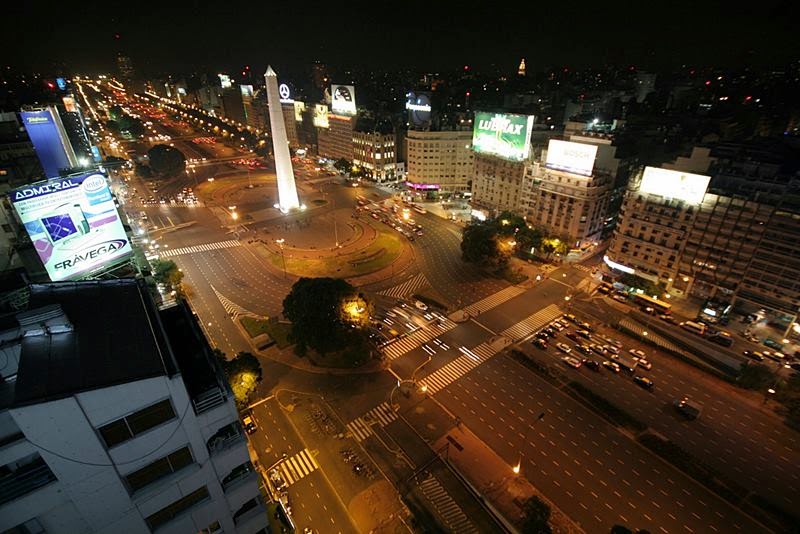
Image credit Expanish LatinAmerica
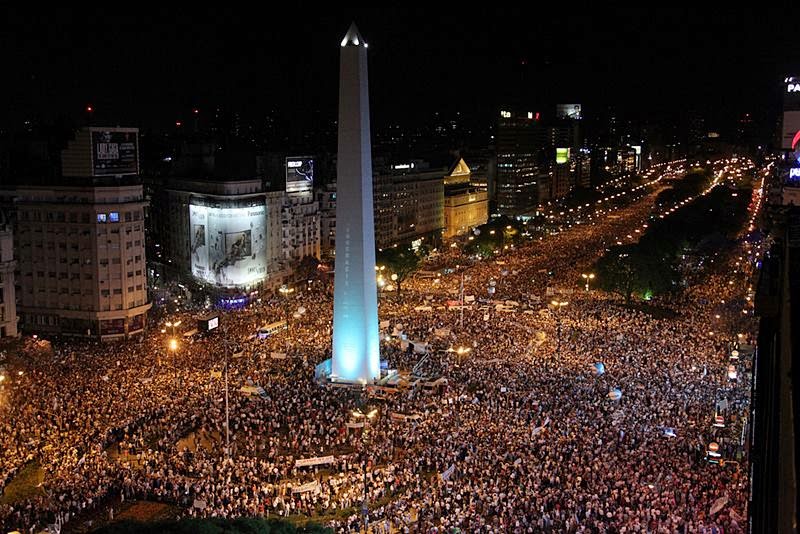
Image credit Guadalupe Aizaga
Source —Internet

No comments:
Post a Comment